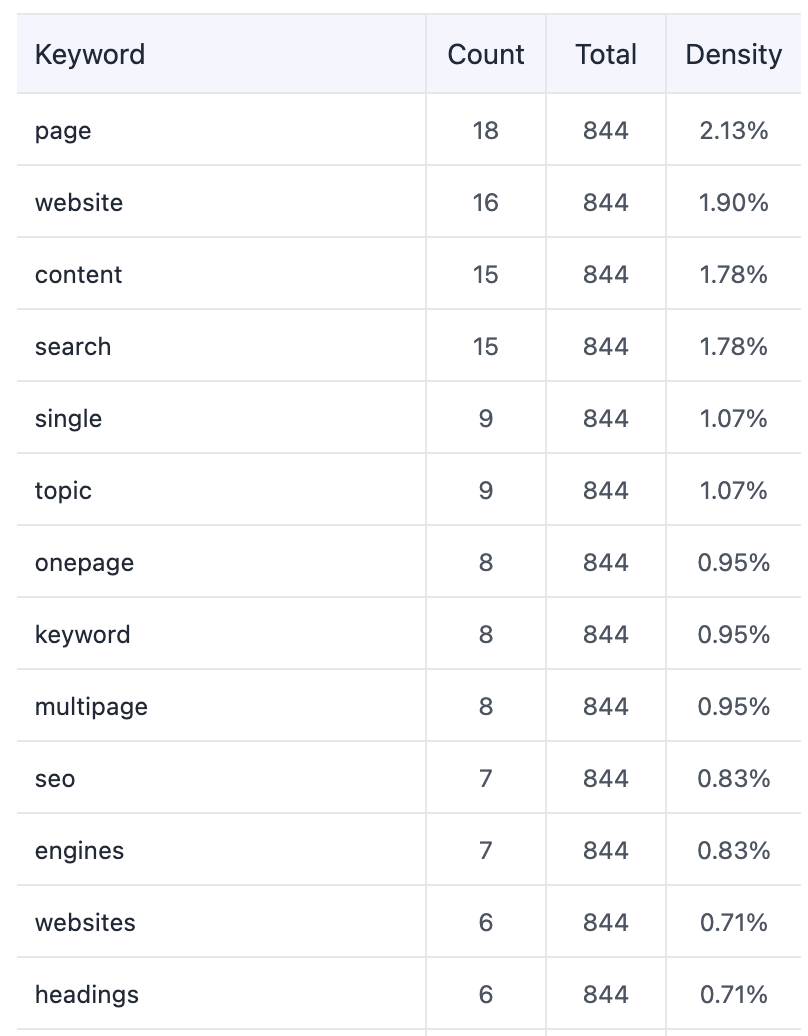Single page website SEO, yes or no?
Conclusion
Yes -> When your content is just about one small topic
No -> When you want to write about more than one topic
What is a single page website / one-page website?
A single page website, also known as a one-page website, is a site where all the essential information is displayed on a single, long-scrolling page. Instead of having separate pages for things like About, Services, or Contact, all content sits within the same webpage, typically divided into clearly defined sections. Navigation links, if present, simply jump the user to different parts of the same page rather than loading a new page. This format is designed to keep things simple and focused, making it easy for visitors to consume information quickly and make decisions without distractions. One-page websites are especially popular for promoting a single product, service, or idea in a direct and uncluttered way.
What is SEO?
SEO stands for Search Engine Optimization. It is the practice of improving your website so that search engines like Google can better understand its content and connect it with users searching for relevant topics. The main goal of SEO is to increase your website’s visibility in search engine results pages (SERPs), ideally ranking on the first page for keywords that matter to your target audience. SEO involves a mix of technical improvements (such as site speed and structure), on-page optimizations (like using the right keywords and headings), and content quality, all aimed at attracting more organic (unpaid) traffic to your site.
But, why?
A search engine saves your content and summarizes what your content is about. There are 2 key things to consider
Headings structure

Headings provide a structured outline for your content, helping both users and search engines understand what each section of your page is about. The main heading, or H1, should clearly state the topic of the page and is typically used only once. Subheadings (H2, H3, etc.) break content into logical sections, making it easier to scan and digest. Proper heading structure also signals to search engines the hierarchy and importance of information on your page, which can influence how your content is indexed and ranked. Using headings in the correct order (H1, then H2, then H3, etc.) improves both readability and accessibility.
Keyword density

Keyword density refers to the percentage of times a target keyword appears on a webpage compared to the total word count. While it was once considered an important ranking factor, modern search engines are now more focused on content quality and relevance rather than just keyword frequency. The best practice is to use your primary keyword naturally within the content, especially in headings and important sections, without forcing it or “stuffing” it in unnaturally. Using variations and related terms also helps search engines understand the context of your content, supporting better rankings for relevant searches.
What happens when people search
Let's say you provide content about the anime Dragon Ball and Doraemon.
If you put all of them in a single page. It's hard for a search engine to determine what your page is about. Is it about Dragon Ball? But there's also a lot of keywords about a blue robot. Similar things happen when people search Doraemon related keywords.
So if your content is about one topic, the heading structure and keyword density will be correct about that specific topic. So a search engine will probably rank you right for that keyword.
The "fake multi-page website" problem

Some websites provide tab-like functionality for you to simulate a multi-page website. And for some of them, you can switch tabs by hashes in the URL location input.
For users' perspective, the URL changes and seems like a real multi-page website. But for search engines, they will be treated as one-page websites. Since all the content will be available to search engines scrapers in one HTML file.
You have to start with one page, one topic anyway
If you are constantly thinking about to build one-page or multi-page websites. I've seen people hesitating and feeling anxious. Personally, I think you should just write about one topic on a single page website! Don't worry about multi-page, since a "multi-page website" is just essentially multi "one-page" websites, and you gotta start with one page, one topic eventually.